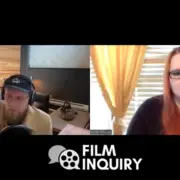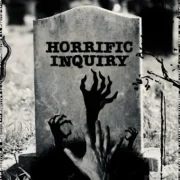Berlinale 2020: Interview With DEATH OF NINTENDO Writer/Producer Valerie Martinez
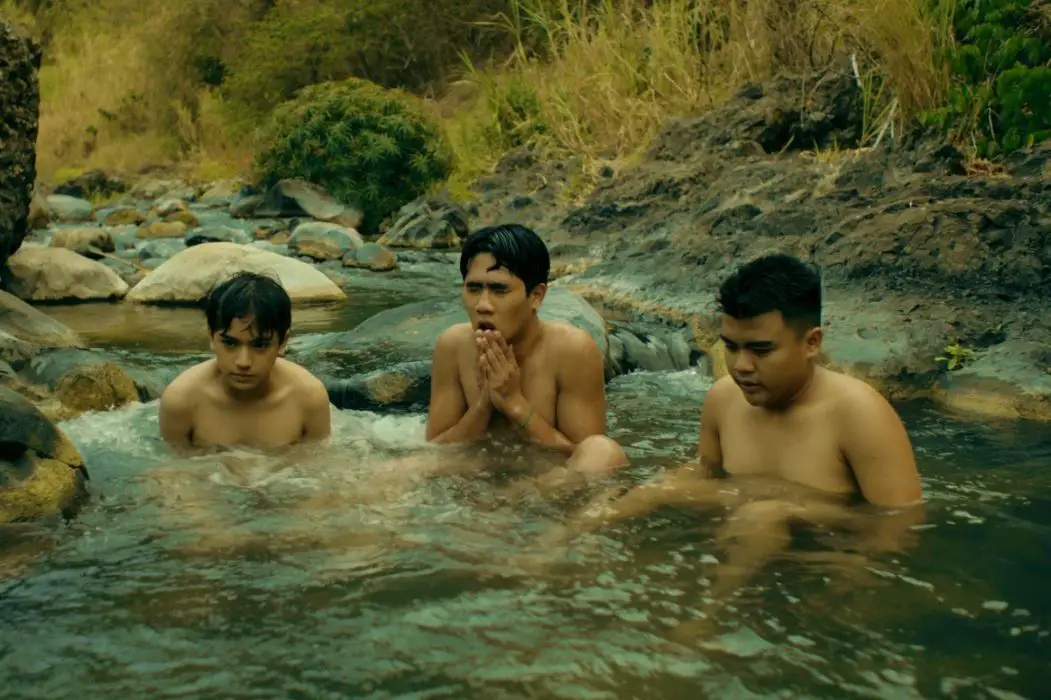
Wilson is a cinema enthusiast based out of Toronto, Canada.…
Death of Nintendo is certainly a unique and sentimental film. Set in 1990s Manila, the film is a coming-of-age narrative that is sure to speak to any generation nostalgic of a time when technology was only beginning to take over the world. I sat down with the writer and producer of Death of Nintendo, Valerie Martinez, to talk about how she developed such an interesting story and eventually brought it to the big screen.
Wilson Kwong for Film Inquiry: This film feels very personal and culturally specific. Can you talk a bit about your own personal background, and how that played into your eventual screenplay?
Valerie Martinez: For sure. I grew up in the Philippines in the ’80s, and went to the same school with Raya Martin (the director), and we lived in the same neighbourhood for about 12 years. So we were together up until high school, then in the 2000s, I moved to the US and thought I was going to do filmmaking right away. But then life got in the way and I also enlisted in the Air Force for four years. After that, I got into system analysis, got my MBA, and did banking for a little bit. But the creative itch was calling, and I’ve been writing since I was young as a hobby, and decided to finally pursue it. I applied to grad school, got into a creative producing program at Columbia. I did that for three years, made a bunch of shorts, then reconnected with Raya.
I find it interesting that Death of Nintendo is classified as an ‘American-Filipino’ film, which isn’t a term we’re used to. It’s similar to a film like The Farewell being classified as an American-Chinese film.
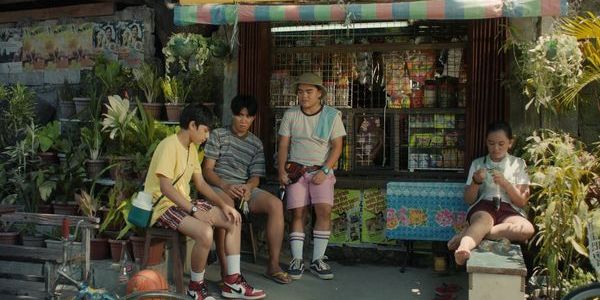
Valerie Martinez: I’ve actually spent more years now living in the US, so I’ve always battled that identity of: how Filipino am I, and how American am I now? And that’s still an ongoing question I have right now. Even though the film is in a foreign language (my mother tongue Tagalog), I identify as American too, so I wanted to have my background validated and show how it’s still an American film. We are a country of immigrants, so if you think of a film like Brooklyn or The Godfather, everyone comes from somewhere and may or may not speak a different language. But I think what makes it American for me is that there is a nomadic kind of experience of how I got here, why I am the way I am and where I came from. And again, because there are very specific cultural Filipino characteristics in the film that only takes place in the Philippines, that’s why it also counts as Filipino.
Prior to writing this film, your other filmmaking credits were all as a producer. How as it transitioning from a producer to writer?
Valerie Martinez: So writing was something that I’ve always done. I just never labeled it to myself until I learned the basics of how to write a screenplay in grad school. At the same time, I also learned the tenets of producing during school. But when we had to pick a concentration, I never actually believed it until my professors were encouraging me to, and said, “This is actually good, you should write more.” And this script that I had to write in our first year, I ended up submitting it to a screenwriting competition by the end of our time in Columbia. It got into the screenwriting faculty honours thing, and I guess in an academic sense, it made me feel like I was on the right track of writing. I was learning the basics and could keep developing it. But I don’t think I jumped from one to the other because I think they’re always kind of hand in hand. And maybe what I write informs how I produce, and how I produce informs what I write.
And in terms of the writing process itself, you had a first draft of this film actually completed many years ago.
Valerie Martinez: It was literally during my first year of grad school in 2014 and my first screen writing class ever. They were just like, “come up with an idea.” And because we were so overloaded with other things, I just had to think of the most familiar thing for me, which was my childhood. And when I pitched it to Raya in 2015, I actually needed a director and he was gracious enough to agree. What convinced me that this was the right person for it was when he had to make a director statement on how he connected to this story. It was so spot on and exactly what I was going for. It was speaking to a generation of people that was in the middle of traditions and the future of technology; the kids who were both playing in the dirt and being introduced to the computer and internet.
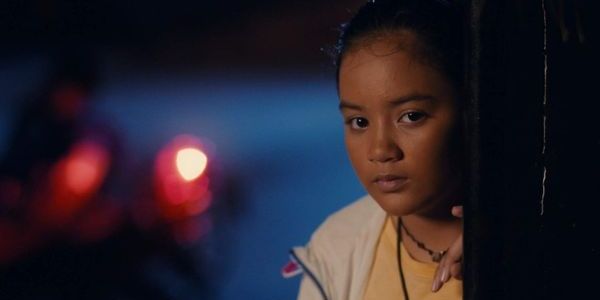
Did the script go through a lot of changes after you started collaborating with Raya?
Valerie Martinez: So what Raya wanted me to work on was the character of Mimo. I initially buried the girl character, just because as a writer, I still wasn’t confident of exposing a lot of myself. I think because I’m more introverted, I just didn’t want my deep personal stuff out there, and he really encouraged me to not think this way. He really probed me and psychoanalyzed me on why Mimo did this, or why Gilligan or Paolo did this to her. It worked out that the way I initially wrote it, I hid a lot of her, and she came out only in the end. So the end parts were always there, but then Raya had said that he wanted to start showing her much earlier, which is what we end up seeing in the film.
Was it important for you to work with Raya on this film, given that he was someone who you knew very well and grew up in the same environment in which the film takes place?
Valerie Martinez: I think it’s the best of both worlds for me, because I don’t really know any other filmmakers who were that close to me. And I got lucky because Raya is a very skilled filmmaker.
And do you find it more challenging to write something based on your own personal experiences, as opposed to writing something completely fictional with no personal attachments at all?
Valerie Martinez: For me, if it’s personal, the words just pour out. But in terms of the fear of exposing yourself, that’s where I’m hesitant to write. And that’s why there’s a lot of fun and games in the beginning of the film, because I was just trying to find a distraction or just entertain without really going into any emotional depth. But towards the end is when I realized that it has to have emotional depth. I can’t write something without genuine feelings.
Do you think audiences from North America will react to the film differently compared to a Filipino audience?
Valerie Martinez: I wonder that myself, just because of the same question that I have for myself on how much I have changed. Am I more American now? Or the fact that the way I was trained to write was an American way. What I know is that the cultural specificity in terms of familiarity and relatability for Filipinos is there. There are things you see on the screen and these little nuance that they can definitely relate to. But I think the universality of the relationships that happen within the families or among the friends, will resonate with both US and worldwide audiences.
Over the years you’ve presented your films at a lot of different film festivals. Do you find the experience at each one different? Or do they all feel the same since your main mission is to just present a specific film?
Valerie Martinez: I think it’s different each time. Even if I go to the same festival during a different year, it can still be a completely different experience. I went to Berlin just as an audience member a few year ago, and I remember watching Midnight Special in Zoo Palast and was just in awe of how big that venue was, how good the sound and the visuals were. Tomorrow, I’m screening my film there, which is even more surreal. And in general, I think whatever is happening in your life at that same time also informs what your experience is.
Film Inquiry thanks Valerie Martinez for taking the time to speak with us.
https://www.youtube.com/watch?v=DMKQTKtvnDc
Does content like this matter to you?
Become a Member and support film journalism. Unlock access to all of Film Inquiry`s great articles. Join a community of like-minded readers who are passionate about cinema - get access to our private members Network, give back to independent filmmakers, and more.
Wilson is a cinema enthusiast based out of Toronto, Canada. He escapes from his day job by writing random thoughts about cinema on the internet. Although he has a longstanding penchant for Hong Kong cinema, he considers himself to be an advocate for Asian cinema in general. He has been attending the Toronto International Film Festival every year since 2005, and more of his work can be found on his website: www.wilson-kwong.com.






